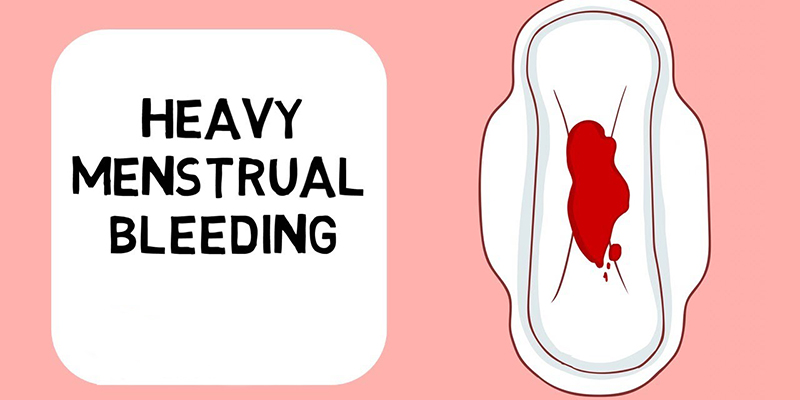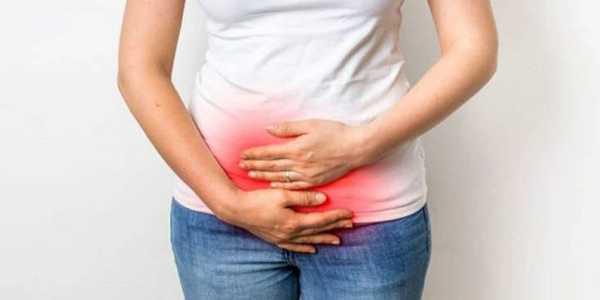Health & medical treatment
What Are The Most Common Symptoms Of Endometriosis?
Endometriosis is a chronic and often debilitating condition that affects approximately 1 in 10 women of reproductive age, amounting to an estimated 176 million women worldwide. This condition occurs when tissue similar to the lining inside the uterus grows outside it, leading to a range of painful symptoms.
Endometriosis is a chronic and often debilitating condition that affects approximately 1 in 10 women of reproductive age, amounting to an estimated 176 million women worldwide. This condition occurs when tissue similar to the lining inside the uterus grows outside, leading to a range of painful symptoms.

The significance of endometriosis in women's health cannot be overstated; it impacts physical well-being and drastically diminishes the quality of life for many affected individuals. Studies indicate that roughly 40% of women with endometriosis face infertility challenges in addition to suffering from severe pain, fatigue, and psychological distress. Raising awareness about this widespread condition is crucial, as prompt diagnosis and recognition are vital for effective management and support. The emotional and physical toll on those affected underscores the urgent need for continuing education and resources surrounding endometriosis.
Endometriosis
Endometriosis is characterized by the abnormal growth of endometrial-like tissue outside the uterus. This rogue tissue can manifest on the ovaries, fallopian tubes, and other areas within the pelvic cavity, prompting a variety of painful symptoms. The severity of endometriosis is categorized into four stages—from minimal (Stage I) to severe (Stage IV)—with symptoms often correlating to the extent of the tissue growth. However, this correlation isn't always consistent; some women in less severe stages may experience severe pain, while others with advanced stages may have only mild symptoms.
Recognizing the symptoms of endometriosis is essential for early diagnosis. Common signs to look out for include chronic pelvic pain, painful periods, and pain during intercourse. By monitoring these symptoms and seeking medical advice promptly, women can expedite diagnosis, enabling better management strategies like medication and surgical interventions. Early intervention alleviates symptoms and significantly improves the quality of life for those grappling with this often misunderstood condition.
Common Symptoms Of Endometriosis
1. Pelvic Pain
Pelvic pain is often the hallmark symptom of endometriosis, manifested as a persistent, dull ache that can range from mild to severe. Unlike typical menstrual cramps, which are usually manageable and often subside with medication, the pain associated with endometriosis can strike unexpectedly, catching women off-guard with its intensity. This pain can occur not only during menstruation but also during ovulation, making it a constant source of discomfort for many affected individuals.
Women frequently describe this pain as a deep, throbbing sensation that can radiate to other areas, such as the lower back or thighs. For instance, some women might find themselves curled up in bed during their period, unable to engage in daily activities due to excruciating pain that feels like a heavy weight pressing down. Additionally, while menstrual cramps typically diminish with the onset of menstruation, pelvic pain from endometriosis can persist well beyond the period, creating a cycle of ongoing discomfort.
Anecdotes from individuals diagnosed with endometriosis emphasize the alarming unpredictability of this pain. One affected woman shared, "I could be at work, and suddenly it feels like someone is stabbing my abdomen. It's not just cramped; it's an entirely different ball game," underscoring the disruptive nature of endometriosis and the necessity for a broader understanding of this complex symptom.
2. Heavy Menstrual Bleeding
Heavy menstrual bleeding, medically known as menorrhagia, is characterized by excessive blood loss that disrupts a woman's daily routine, often manifested by soaking through one or more sanitary pads or tampons every hour for several consecutive hours. Women who have endometriosis usually experience this intensified bleeding alongside their menstrual cycles, including unexpected bouts of bleeding between periods, which can leave them feeling fatigued and overwhelmed.

The emotional ramifications of menorrhagia extend beyond the physical symptoms; many women report feelings of helplessness and anxiety as they navigate the challenges of managing unpredictable bleeding. Daily activities, such as work or social outings, can become sources of Stress as women worry about sudden leaks or the need for frequent bathroom breaks.
Furthermore, the physical toll of excessive bleeding is considerable. Anaemia, fatigue, and discomfort can emerge from the body's struggle to cope with the blood loss, leading to disrupted sleep and difficulty maintaining stamina throughout the day. One affected woman articulated, "Just when I think I'm prepared for my period, I'm hit with heavy bleeding that lasts days longer than I can manage. It grips my life in ways I never imagined," reflecting the debilitating nature of menorrhagia for those dealing with endometriosis.
3. Pain During Intercourse
For many women living with endometriosis, pain during or after intercourse is a troubling reality resulting from inflammation and the presence of endometrial tissue outside of the uterus, which can lead to significant discomfort during penetration. This pain can vary widely, from a dull ache to sharp, shooting pains, detracting from intimacy and prompting a profound fear of sexual activity.
The psychological implications of this pain can be equally significant; women often report feelings of embarrassment or frustration, which can strain their intimate relationships. The inability to enjoy closeness with a partner without discomfort fosters feelings of inadequacy and disconnect, leading to anxiety regarding sexual encounters. One affected woman explained, "It’s disheartening to want to be close to my partner, but the pain acts as a barrier. It changes how we connect, making it difficult to feel romantic." Understanding this pain is crucial, as it emphasizes the need for compassionate dialogue regarding healthy relationships and open communication about the emotional and physical ramifications of endometriosis.
4. Pain With Bowel Movements Or Urination
Endometriosis can adversely affect bowel and bladder function, often leading to painful symptoms that disrupt daily life. Women may experience discomfort during bowel movements, urgency, or difficulty urinating. These symptoms occur when endometrial-like tissue grows on critical organs, resulting in inflammation. Some women report significant pain during menstruation that extends to bowel movements or urination, often leading to the avoidance of particular foods or activities. These complications can considerably diminish the quality of life, as the fear of discomfort may limit social interactions and hinder everyday routines.
Additional Symptoms To Consider
While many are familiar with the primary symptoms of endometriosis, such as pelvic pain and heavy periods, several lesser-known yet equally concerning symptoms warrant attention. Fatigue is a pervasive issue among those with endometriosis, often leaving individuals feeling drained and impacting daily activities. This fatigue can stem from the chronic pain and inflammation associated with the condition, culminating in a significant decline in quality of life.
Infertility is another critical aspect related to endometriosis. Research indicates that approximately 30-40% of women diagnosed with this condition may face difficulties conceiving, underscoring the importance of addressing endometriosis when discussing fertility challenges.
Additionally, gastrointestinal issues such as bloating, diarrhoea, and constipation are frequently reported by those with endometriosis. These symptoms arise because endometrial tissue can infiltrate the intestines, leading to severe digestive traumas.
Hormonal variations, such as mood swings and weight fluctuations, can also emerge from the imbalances caused by this condition. Recognizing and understanding these additional symptoms is vital for early diagnosis and effective management of endometriosis, ensuring that those affected receive comprehensive care for their overall health.
Empowering Awareness And Resources
Recognizing the symptoms and complications of endometriosis can pave the way for early diagnosis and effective management of this debilitating condition. Persistent symptoms such as chronic pelvic pain, painful menstruation, and discomfort during intercourse can dramatically impact a woman's quality of life. Anyone identifying with these experiences should prioritize seeking medical advice. Don't hesitate to contact healthcare professionals who can provide guidance, support, and diagnostic tests. Also, women must advocate for their health and foster conversations about their symptoms—your body is your responsibility, and you deserve comprehensive care. By raising awareness and pursuing timely diagnoses, women can take charge of their well-being, leading to improved health outcomes and a better quality of life. Remember, you are not alone in this journey; support is always accessible.



